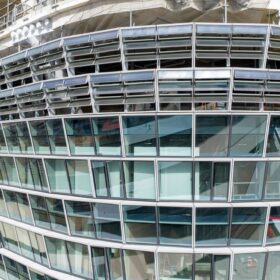The hugely popular scheme – which has received more than 18,000 applications since opening on 1 July – is available to an estimated 100,000 households after the Cook and Albanese governments collaborated to allow for a fivefold expansion to the program’s accessibility.
The scheme will now be supported by the Cook Government’s $50 million (USD 32.6 million) Local Battery Manufacturing Program (LBMP), which is accessible to local manufacturers.
As part of that program, local battery manufacturers can access $30 million in grants to grow their capacity to provide competitive residential battery products, with grants of up to $5 million, that must be matched dollar for dollar by the proponent, to be made available.
The package also includes $20 million for low-interest loans.
Applications for those loans will open early 2026.
For more information see: https://www.wa.gov.au/organisation/department-of-energy-and-economic-diversification/local-battery-manufacturing-program
Comments attributed to Premier Roger Cook:
“My government’s priority is to diversify Western Australia’s nation-leading economy by becoming a renewable energy powerhouse.”
“That way, our State can remain the best place in the world to get a quality job.”
“Through our household rebates, we’re ensuring Western Australian families are at the forefront of the State’s renewable energy future, and it’s pleasing to see thousands of batteries already installed as a result.”
“Now, we’re extending our support to manufacturers so that local businesses can also be involved.”
“This builds on my government’s efforts to decarbonise and diversify WA’s economy, including through the State Development Bill, and will help our State become a place that makes more things here.”
Comments attributed to Energy and Decarbonisation and Manufacturing Minister Amber-Jade Sanderson:
“Our Residential Battery Scheme is the best in Australia, delivering real, ongoing cost-of-living relief through reduced power bills by enabling households to store and use more of their solar energy.”
“The scheme is equitable, accessible and affordable and brings the benefits of our transition to becoming a renewable energy powerhouse to 100,000 households.”
“The Local Battery Manufacturing Program extends those benefits to local battery manufacturers by supporting them to increase capacity to take advantage of increased demand.”






By submitting this form you agree to pv magazine using your data for the purposes of publishing your comment.
Your personal data will only be disclosed or otherwise transmitted to third parties for the purposes of spam filtering or if this is necessary for technical maintenance of the website. Any other transfer to third parties will not take place unless this is justified on the basis of applicable data protection regulations or if pv magazine is legally obliged to do so.
You may revoke this consent at any time with effect for the future, in which case your personal data will be deleted immediately. Otherwise, your data will be deleted if pv magazine has processed your request or the purpose of data storage is fulfilled.
Further information on data privacy can be found in our Data Protection Policy.